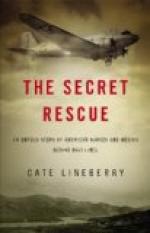He passed out. Professor Nast blinked nervously.
“Dear me,” he murmured, “dear me, how unpleasant!”
Mills smiled grimly, and, rising, stretched his limbs.
“I think what we have left to do won’t take very long. I hardly think that it is necessary for me to reply to the accusations brought by the gentleman who has just left us.”
“No, let’s hear no more of it,” said Preston. “I propose that we reply to Robinson to-night and have an end of the business. To-morrow we’ll have plenty to think of without this,” he added grimly.
The reply was written and forwarded the next day to Robinson, and the following announcement was given out at Erskine:
The Athletic Committee has decided that Cowan is not eligible to represent the college in the football game with Robinson, and he has been withdrawn. A protest was received from the Robinson athletic authorities yesterday afternoon, and an investigation was at once made with the result stated. The loss of Cowan will greatly weaken the team, it is feared, but that fact has not been allowed to influence the committee. The decision is heartily concurred in by the coaches, the captain, and all officials, and, being in line with Erskine’s policy of purity in athletics, should have the instant indorsement of the student body.
H.W. NAST, Chairman.
The announcement, as was natural, brought consternation, and for several days the football situation was steeped in gloom. Witter and Hurst were seized upon by the coaches and drilled in the tactics of right-guard. As Foster had said, Witter, while he was a good player, was light for the position. Hurst, against whom no objection could be brought on the ground of weight, lacked experience. In the end Witter proved first choice, and Hurst was comforted with the knowledge that he was practically certain to get into the game before the whistle sounded for the last time.
Meanwhile Artmouth came and saw and conquered to the tune of 6-0, profiting by the news of Cowan’s withdrawal and piling their backs through Witter, Hurst, and Brown, all of whom took turns at right-guard. The game was not encouraging from the Erskine point of view, and the gloom deepened. Foster declared that it was so thick during the last half of the contest that he couldn’t see the backs. Neil saw the game from the bench, and Paul, once more at left-half, played an excellent game; but, try as he might, could not outdo Gillam. When it was over Neil declared the honors even, but Paul took a less optimistic view and would not be comforted.
All the evening, save for a short period when he went upstairs to sympathize with Cowan, he bewailed his fate into Neil’s ears. The latter tried his best to comfort him, and predicted that on Monday Paul would find himself in Gillam’s place. But he scarcely believed it himself, and so his prophecies were not convincing.




